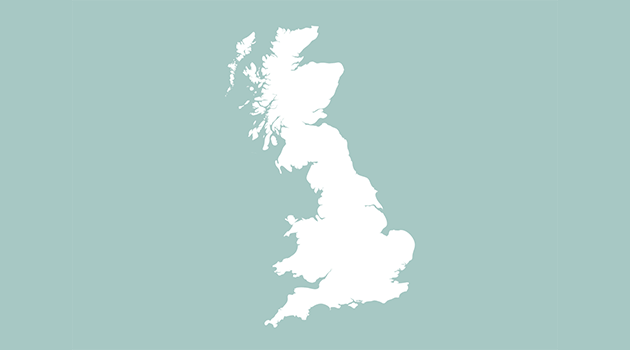After 10 years of austerity and public spending cuts, where some councils have seen their budgets slashed to the bare bones, local authorities may struggle to find resources and expertise to secure the much-needed finance to stamp out inequalities.
And despite the promise to promote devolution and allow local authorities to decide where and how to spend funds, the government has established a centralised pot of money and has determined what it can be spent on.
The £4.8bn Levelling Up Fund, designed to invest in infrastructure that improves everyday life across the UK, must support town centre and high street regeneration, local transport projects, and cultural and heritage assets. The Fund will run until 2024/25, and local authorities must submit “eligible applications” via the online application portal, by midday on 6 July.
In its latest analysis, State of the North 2021/2022, thinktank IPPR North said that the funding allocated to eradicate regional inequality across the UK “pales in comparison” to what was lost through that decade of austerity measures.
According to the IPPR North report, the £0.5bn so far allocated to the north from the Levelling Up Fund represents an investment of just £32 per person in the north. There has been a £413 per person fall in annual council service spending from 2009/10 to 2019/20.
Moreover, the report says: “New funding streams continue to be competitive and controlled by the centre.”
Arianna Giovannini, Associate Professor of Local Politics and Public Policy at De Montfort University, says: “If we look at the Levelling Up White Paper, certainly there is an ambition to empower local communities and local authorities to rebalance the economy and devolve more power. But it is also quite clear that one of the main issues at the heart of levelling up has not been addressed, which is central government’s top-down approach to addressing regional inequality.”
Giovannini is one of the co-authors of the IPPR North report. Various research shows that over-centralisation is the root cause of regional inequalities in England, she explains. “If we want to address regional inequalities, we need to tackle over-centralisation as well.”
The UK remains one of the most regionally unequal countries in the developed world and it is still dealing with the impact of the ongoing pandemic. There are also significant gaps in productivity, earnings and access to good jobs in the north compared to other parts of England. For every job created in the north, just under three were created in London and the ‘greater south-east’, the report says.
In its submission to the government’s Levelling Up White Paper, SIGOMA, which represents 47 authorities across the northern, Midland and southern coastal regions of England, says: “A move away from a bidding process would be welcome, especially where this dissipates potentially significant amounts into smaller pots where they will be less effective at a regional and local level.”
SIGOMA’s combined population membership amounts to nearly a quarter of the population of England and collectively accounts for around 25% of English local government expenditure. “Funding Initiatives such as Levelling Up and Towns Funds will have little impact if, at the same time, councils are facing huge gaps in their mainstream funding,” it said in its submission.
“Cuts over the last decade have impacted most heavily on the most deprived areas while the main funding sources that are increasing are business rates, and council tax, both of which benefit more prosperous areas. At the same time, funds such as Towns Fund are not focussed exclusively on the most deprived authorities.”
Devolving power
The Levelling Up White Paper, published on 2 February, introduces a new devolution framework, which extends devolution beyond metropolitan areas for the first time. The government has pledged that any area of England that wants a devolution deal will have the chance to negotiate one by 2030.
Local authorities seeking to form a new mayoral combined authority (MCA) will be offered broadly the same powers and access to funds that existing MCAs have. But there are strict conditions to be met first. Some of these include prioritising devolution deals covering a functional economic area or a whole county geography (for example, a county council joining with unitary authorities in the county).
The government is inviting nine areas, including Cornwall, Leicestershire and Norfolk, to enter negotiations for county deals, with plans to agree these deals by autumn 2022. There are three levels of devolution.
“This creates a kind of a hierarchy. Some ‘levels’ are better than others. And if you want to get the top one, there are a lot of terms and conditions to accept including the introduction of metro mayors. Now this is something that is problematic for local authorities. And it also shows that this is a form of devolution that doesn't map the needs of local authorities and the communities they serve. It’s only what the centre wants. In some places, creating a metro mayor is problematic,” Giovannini says.
She highlights the example of Nottinghamshire and Derbyshire, counties that are now considering going for a single devolution deal. “Naturally, these are not two geographies of local authorities that would organically go together, but they will have to in order to get a deal and they will have to accept a metro mayor if they want to get a level three deal.”
This issue is also highlighted in research by the Local Government Authority (LGA), which found in its 2018 report that while the government had attempted to open up financial freedoms to local decision makers, in practice the scale of progress was relatively limited, due to a range of barriers.
In its latest report, Combined Authorities, Financial freedoms and fiscal devolution, published in April 2022, the LGA, the national membership body for local authorities, found that although much has changed since the 2018 research, it found that “further progress towards greater local financial freedom remains limited, and in a few respects has arguably regressed”.
The overwhelming majority of combined authority financial freedoms come with some central government restrictions on how funding is raised and spent. The LGA defines financial freedoms as “the ability to manage a single pot of funding with maximum flexibility on a multi-year basis, without intervention from government.”
Critically, the LGA says that the government has placed limits on both the raising and spending domains in devolution deals, “for example, by having made explicit agreements about the scale of grant funding available to combined authorities to spend on a specific area”.
Even more critical will be the relationship between Prime Minister Boris Johnson and his Chancellor Rishi Sunak – whose political cachet has collapsed in the wake of revelations that his wife held non-domicile status.
Johnson will struggle to carry out his ambitious levelling up plans without concrete support from the Treasury, and some question this allegiance given that Sunak’s Spring Statement 2022 mentions ‘Levelling Up’ just 10 times in the 46-page report.
There is no question that local authorities urgently need investment after the 2010 austerity cuts, but under the government’s Levelling Up plans they will have to work in a competitive process, fighting against each other for a little pot of funding that only the government can dictate what that money is spent on. Research by most local authorities experts shows that this is not the right way to level up a vastly unequal country.
It’s clear that local authorities will work hard to adapt to the new devolution framework because they critically need funds to serve their local communities, but whether those communities most in need will benefit equally remains uncertain.
Devolution levels:
- Level 3 – a single institution or county council with a directly elected mayor (DEM);
- Level 2 – a single institution or county council without a DEM, across a functional economic area (FEA) or whole county area;
- Level 1 – local authorities working together across a FEA or whole county area such as through a joint committee.
Recent articles
Levelling up: making it work
The Levelling Up agenda is hugely ambitious, incorporating everything from infrastructure to education and skills, private investment to public procurement. Many factors must align in order to make a real difference.




